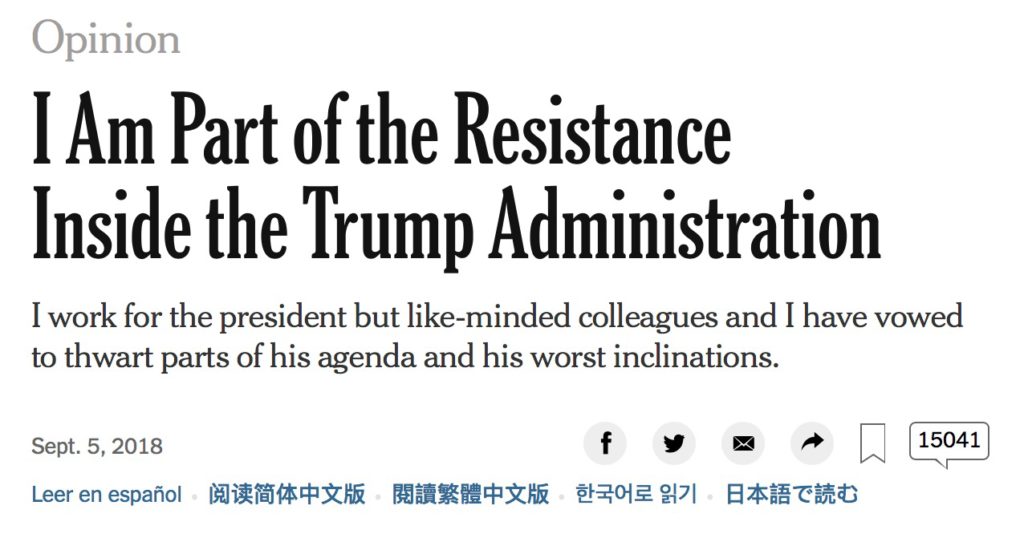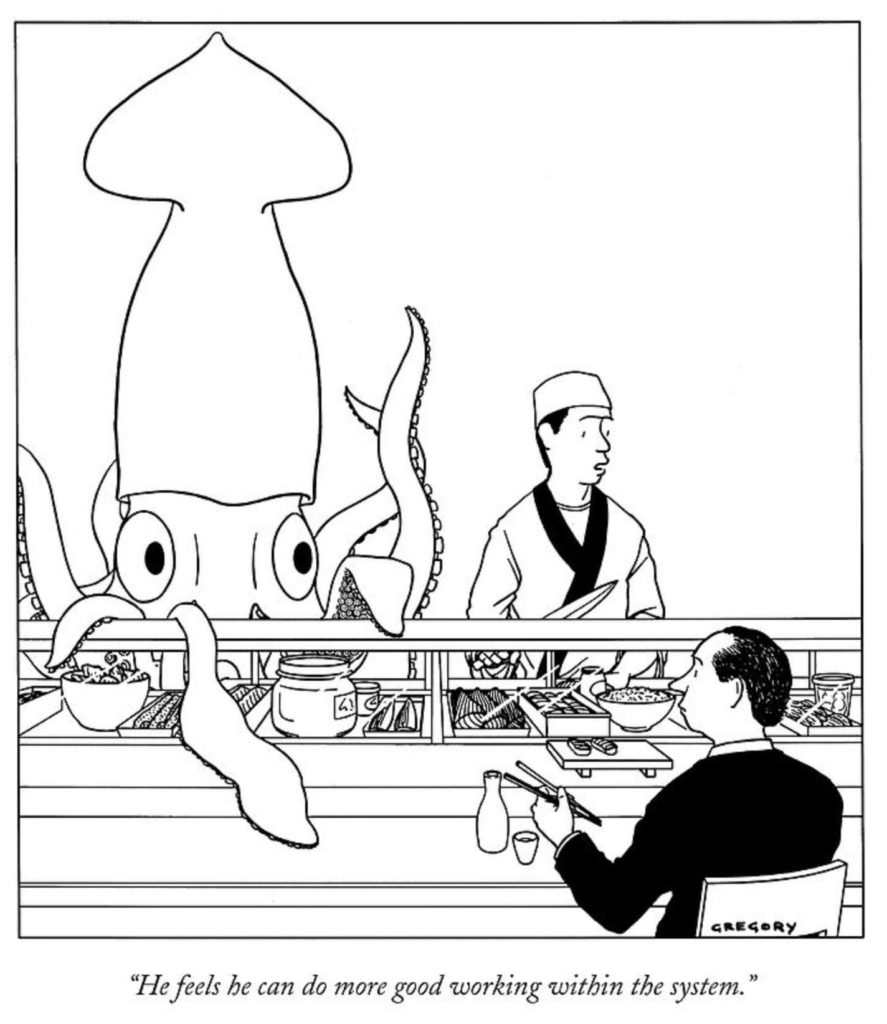This week has not suffered from lack of news for people like me who are obsessed with the coverage of news coming out of Washington.
First, there was all the fuss over Nike featuring NFL kneeling protester Colin Kaepernick being featured prominently in Nike’s latest “Just Do It” campaign, along with a tiny number of people getting an enormous amount of attention for destroying their Nike gear.
There was, of course, the ongoing live TV coverage of the Kavanaugh Supreme Court nomination hearings and all the accompanying drama.
And there were also the first excerpts and interviews about Bob Woodward’s new book Fear about conflict inside the White House along with the many comments from people who found it convenient to deny they had said what Woodward said they did. (I don’t have complete faith in many of the people who’ve written recent books about the Trump administration, but I have to say that Woodward has a good, though not perfect, track record.)
But the thing that really made the heads explode of the Twittering and chattering class was the anonymous Op/Ed written by a “senior official” at the White House published in the New York Times. (This has also rightly been called a column and wrongly called an editorial.)
In the commentary, the author writes:
“To be clear, ours is not the popular “resistance” of the left. We want the administration to succeed and think that many of its policies have already made America safer and more prosperous.
“But we believe our first duty is to this country, and the president continues to act in a manner that is detrimental to the health of our republic.
“That is why many Trump appointees have vowed to do what we can to preserve our democratic institutions while thwarting Mr. Trump’s more misguided impulses until he is out of office.
“The root of the problem is the president’s amorality. Anyone who works with him knows he is not moored to any discernible first principles that guide his decision making.”
Once this was published Wednesday afternoon, Twitter could find little else to talk about, despite the target-rich news environment.
Paige Lavender, of the Huffington Post, tweeted:
Rich Lowry, editor of the conservative National Review, noted:
So looks like the author is a "senior," but not a "top," official? ("a top official complained to me recently…") https://t.co/2m2qIPvd5K
— Rich Lowry (@RichLowry) September 5, 2018
Eric Lach, deputy news editor of The New Yorker, asked:
Which was actually a pretty good question. On the one hand, what a challenge to the reporting staff of the NY Times to find out who the editorial board gave a promise of anonymity to. (Remember: There is no connection between the editorial board/staff at the Times and the reporting staff.) But this could also be a problem for the Times, because as the Supreme Court case of Cohen v. Cowles Media showed, news organizations have a legal obligation to keep their promises to their sources.
University of Maine journalism prof Michael Socolow, pointed out in a series of tweets that the NY Times carrying a anonymous Op/Ed pieces while not common, is not unheard of. He gave several examples over the course of the following day:
And another anonymous Op Ed in @nytimes (this one 1977)https://t.co/iX3mVhoDPM
— Michael Socolow (@MichaelSocolow) September 5, 2018
And as any fan of the musical Hamilton and the Chernow biography of the first treasury secretary knows:
Absolutely. Was common. And Hamilton’s paper is now the New York Post https://t.co/uYggacETZg
— RalphIsNow@rhanson40@threads.net (@ralphehanson) September 7, 2018
There was also an extensive debate over what value publishing the anonymous opinion piece had, especially given that virtually everything in it had been reported many times before.
One thing I enjoyed was all the satire that spread from it:
Well, I guess there's no real utility in pitching anything else for the rest of the day, huh?
— Liz Mair (@LizMair) September 5, 2018
Tomorrow Rolling Stone will publish an op-ed from an anonymous member of Nickelback explaining how he’s trying to make them suck less behind the scenes
— Brian Hiatt (@hiattb) September 5, 2018
And my favorite, shared by Kyle Wrather, is an Alex Gregory New Yorker cartoon from 2004:
Since the commentary was published, there’s been endless levels of speculation as to who the author is, each accompanied by a denial, ranging from the reasonable (director of national intelligence, Dan Coats) to the absurd (“Javenka”) to the fanciful (First Lady Melania Trump).
Of course, the denials mean little. When journalist Joe Klein wrote his novel Primary Colors under the pen name Anonymous sbefore being unambiguouslyWoodward said that Felt was indeed his source., he repeatedly denied penning the story about the thinly disguised Bill Clinton primary outed by his own handwriting. And FBI associate director F. Mark Felt long denied being Bob Woodward’s secret Watergate source Deep Throat. Only when Felt was near death did his family admit he was the source.
Trying to outline the coverage of this story could (and in some ways has) keep this blog post going forever, so let me just end with this excellent analysis from WaPo media columnist Margaret Sullivan (who used to be the NY Times public editor)
The NYT’s mystery OpEd was newsworthy — and fraught with potential ethical and legal issues. My column https://t.co/Ci6fHTq4mb
— Margaret Sullivan (@Sulliview) September 6, 2018


